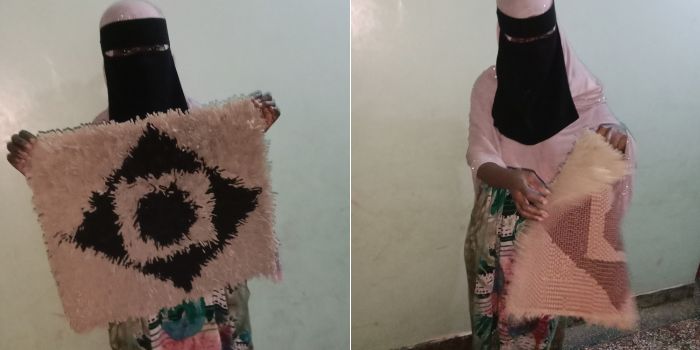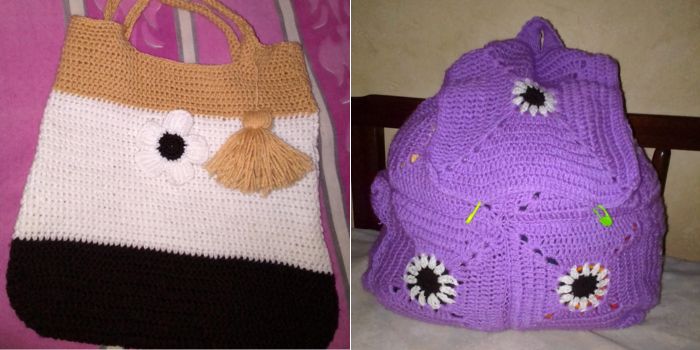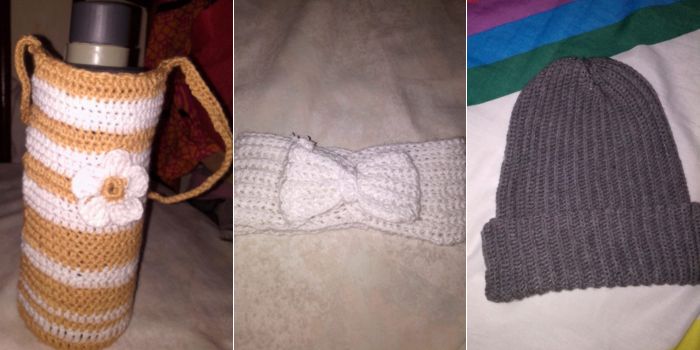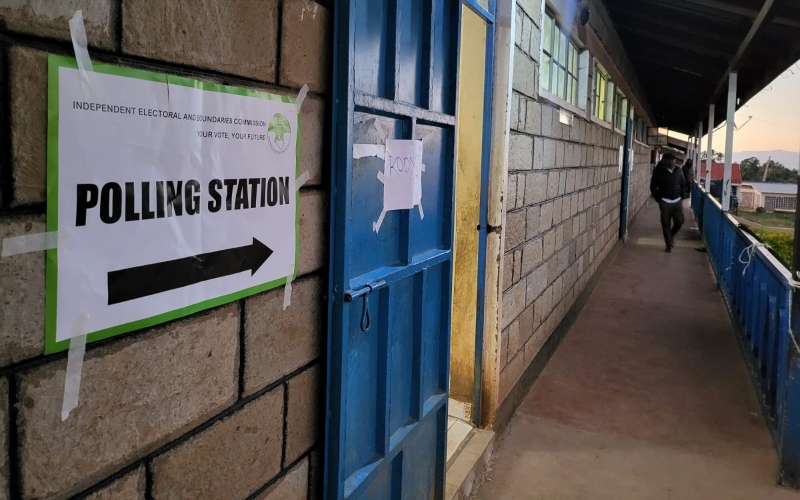Mombasa woman cashes in on handmade mats after losing bank teller job

Bahati Omar, once a bank teller, has found a source of livelihood in handmade mats and also trains others in the business.
After losing her job as a bank teller in 2018, Mombasa resident Bahati Omar knew she had to think quickly of a way to generate income to support her son and her siblings.
Being the firstborn of seven children, the 34-year-old took up the role of supporting her siblings since her two elderly parents were unemployed.
"I depended on my job to support my family so when I was sacked, I felt like it was the end. However, I knew there was no time for self-pity as my siblings and son needed me," she says.
At the time, Bahati, who has a bachelor's degree in economic administration and political science, had just Sh50,000 in her account.
"I had never thought of venturing into entrepreneurship before, so every time the thought came to my mind, I brushed it off for fear of losing the little money I had," she says. "I started searching for jobs, but when they took a long time to come, I eventually started considering starting a small business that wouldn't require much capital."
 Some of the other handmade items that Mombasa businesswoman Bahati Omar makes for sale. (Photos: Mishi Gongo)
Some of the other handmade items that Mombasa businesswoman Bahati Omar makes for sale. (Photos: Mishi Gongo)
A chance finding
Bahati said that while searching the web for a job one day, a Facebook notification popped up of a woman marketing doormats, which she made from wool.
"I immediately started researching the doormats, watching videos through YouTube," she says, adding that the following day, she went to the market to buy the raw materials for her business.
The mats and four bundles of wool she needed cost Sh1,400 a metre and Sh120 each, respectively.
"I bought the raw materials and made my first doormat. Mixing white and blue wool and adorning it with a star at the centre," she says, adding that she sold the first piece to a neighbour who asked for five more.
"She was amazed at the design so she ordered more pieces for her entire house," Bahati says with a smile.
"Most people love items that are customised so I ensure to give my customers what they need," she says, adding that she adds personal touches, including the names of couples and companies, and whatever else a client desires.
Learning continues
Bahati notes that the work was challenging at the beginning since she had not mastered the skill but points out that every time a customer came up with a design, she tried to deliver it to perfection, using the experience as training or to learn.
Her targets are companies and households.
Her smallest doormat costs Sh700 and the largest Sh2,500, she says, adding that in a good month, she makes up to Sh50,000.
The flexibility of the business allows her ample time with her six-year-old, a privilege she did not have while employed.
"My business allows me to concentrate on raising my son as well as studying. At the moment I am doing the Certified Public Accountant (CPA) course and want to study more on business management in the future," she says.
Bahati has also learned embroidery, a skill she uses to add style to clothes.
"I also sell new clothes. Sometimes I get plain t-shirts or dresses, that I embroider," she tells The Eastleigh Voice.
 Some of the other handmade items that Mombasa businesswoman Bahati Omar makes for sale. (Photos: Mishi Gongo)
Some of the other handmade items that Mombasa businesswoman Bahati Omar makes for sale. (Photos: Mishi Gongo)
Passion and business
Bahati uses social media to market her business and offers online classes that have helped her find more and more students ever since the COVID-19 pandemic that struck in 2019.
She has trained about 30 people, who often share their success stories with her.
"It feels good every time one of my students sends me a picture of their work or when they tell me about their progress in the business," she says. "Due to the pandemic, many people try to get various skills to keep them busy. I train both men and women."
Bahati's business has improved her social and business networking skills, causing her to make many friends, whom she says support and encourage her.
She dreams of exporting her products to international markets.
"My customers are mostly from Kenya, while a few are from Tanzania. I hope to spread my business to other countries in the future," she says.
Her advice is to never be afraid to venture into self-employment.
"There are many people who are unemployed or have lost their jobs and do not know what to do. Find something you are passionate about and make it your business," she says.
Top Stories Today
















































